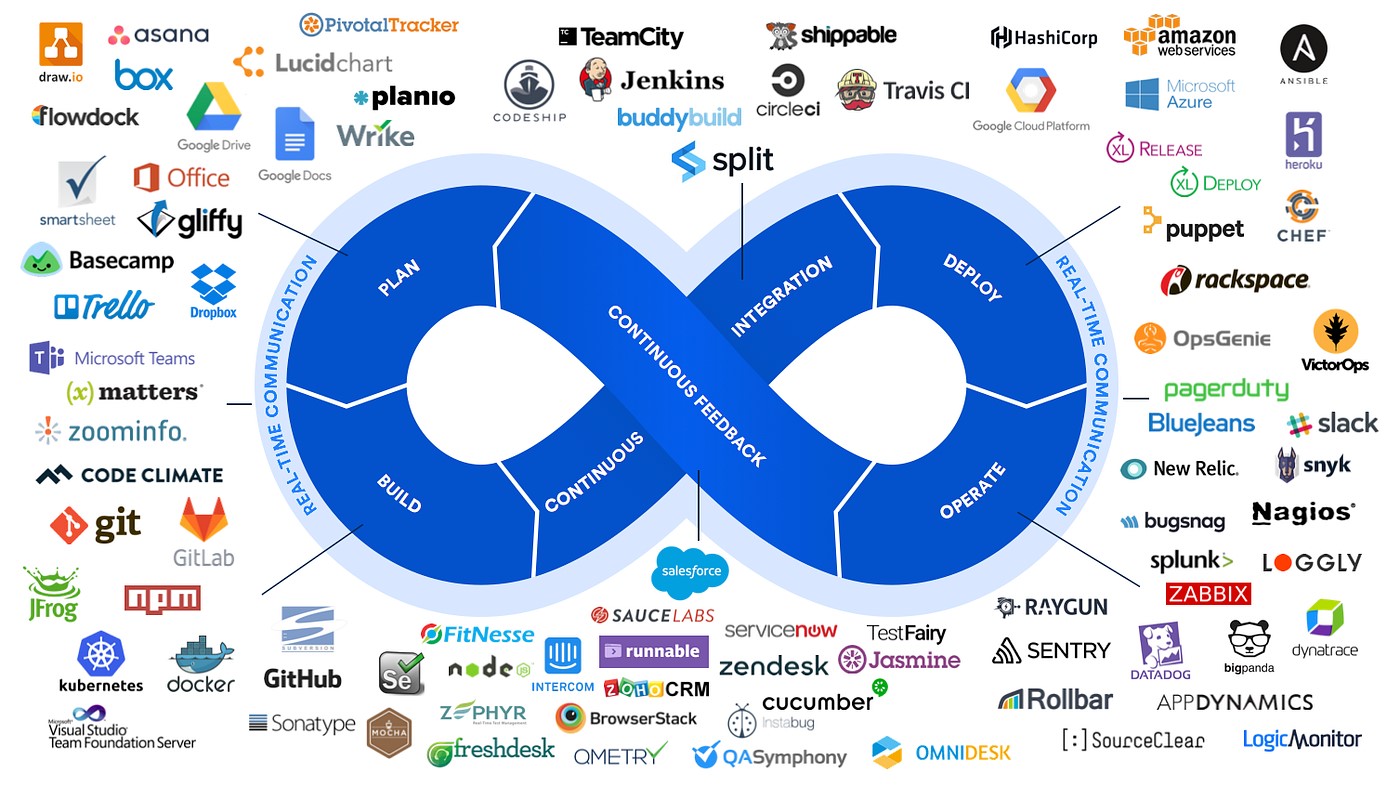By combining speed, security, and cooperation, DevOps has changed how companies provide software. Smarter automation, better security, and flawless collaboration define the best DevOps techniques for 2025. Many professionals join a DevOps Course in Delhi to gain hands-on knowledge of tools and practices.
To remain competitive, companies today depend on cloud-native tools, observability, and artificial intelligence-driven insights. These techniques guarantee quality and resiliency while also helping teams rapidly create dependable software. DevOps has now transcended a procedure. It is a culture that fosters innovation and long-term success in the digital era.
DevOps Best Practices In 2025
Modern software development and delivery depend on DevOps as its basis. It assists businesses in distributing software more swiftly while preserving high security and quality. DevOps in 2025 is more than just a procedure; it is a way of life that brings together development, operations, and business teams.
To get ahead, businesses today emphasize automation, transparency, security, and scalability. A reputed DevOps Training Institute in Gurgaon helps learners build real-world skills for career growth. With modern technologies and trends that influence how teams collaborate, the procedures have changed.
1. Continuous Automation
In 2025, automation still powers DevOps. Teams guarantee quicker releases by automating building, testing, and deployments. Infrastructure as Code has helped automate infrastructure to become more sophisticated. This lets teams handle massive cloud settings.
Learners prefer a DevOps Course Online with Placement because it offers flexibility and job support. Automation gives engineers more time to concentrate on innovation and so lowers human error. Companies that embrace full automation may confidently and rapidly provide software.
2. Security by Design
Core DevOps processes now depend on security. DevSecOps will no longer be elective in 2025; it will instead be required. Teams include security testing at every stage of the pipeline. Early vulnerability detection by developers relies on automated tools.
Students enrolling in a DevOps Course in Delhi get exposure to automation and cloud concepts. Functional and performance testing are accompanied by security checks. This technique strengthens applications and lowers risks. Organizations that adhere to security by design safeguard both their systems and their clients.
3. Observability and Monitoring
Observability is going beyond just tracking. 2025 teams employ smart tools that offer real-time system analysis. Combined logs, metrics, and traces create a complete view of the application condition.
Engineers can find problems before they impact consumers. Machine learning improves predictive Analysis, helps to minimize downtime. Excellent visibility enables companies to preserve trust and provide consistent digital experiences.
4. Cloud-Native Approach
Nowadays, DevOps is ruled by cloud-native approaches. Standards have become microservices, containers, and Kubernetes. Scalable applications created by teams are quickly adaptable to demand changes.
Advanced DevOps solutions offered by cloud providers help to lower intricacy. Hybrid and multi-cloud approaches provide resilience and flexibility. Businesses view cloud-native DevOps as the best means to stay competitive in 2025. A trusted DevOps Training Institute in Gurgaon focuses on both theory and live projects.
5. Collaboration and Culture
Culture has always been the focus of DevOps. With virtual teams and remote work, cooperation has become more robust in 2025. Tools of communication and systems let teams in different time zones work together effortlessly.
Developers, testers, and operations people have duties in common. Shared ownership culture improves accountability and helps to remove bottlenecks. With a DevOps Course Online with Placement, learners gain confidence through guided career assistance. Teams that collaborate create faster delivery and superior quality.
6. AI and Machine Learning in DevOps
DevOps has grown increasingly reliant on machine learning and artificial intelligence. For automated code reviews, predictive testing, and intelligent monitoring, teams employ artificial intelligence. Machine learning systems examine data to recommend pipeline upgrades.
Performance bottlenecks and security risks are found with the aid of artificial intelligence-driven automation. AI improves DevOps in 2025 by making it smarter, faster, and more efficient.
Conclusion
DevOps in 2025 transcends a collection of approaches. This is a way of thinking that adds security, dependability, and speed to the release of software. Its basis is formed by automation, security by design, observability, and cloud-native approaches.
Choosing a DevOps Course in Delhi opens opportunities in IT and product-based companies. Its features and future expansion depend on cooperation and artificial intelligence. Innovations follow practices’ lead. Though it will keep changing, DevOps will always remain centred on culture and ongoing development.
